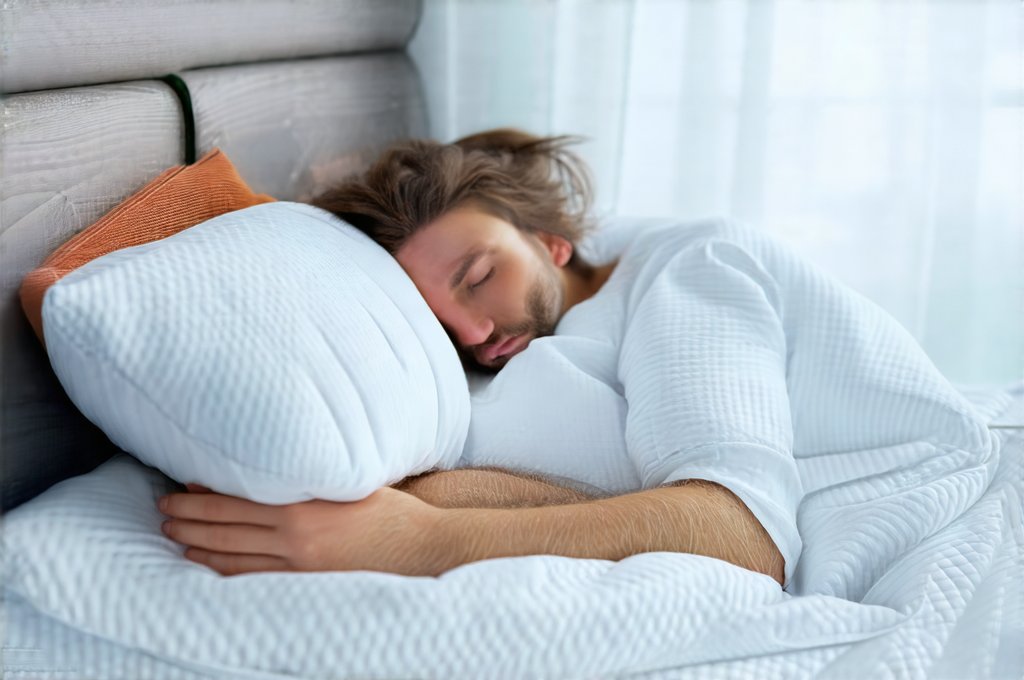Sleep is often considered a restorative pillar of health, yet for millions, achieving restful sleep feels like an elusive dream—especially when grappling with chronic bladder discomfort. The constant urge to urinate, the disruptive nighttime awakenings, and the overall anxiety surrounding bladder function can create a vicious cycle that steals precious hours of rest. This isn’t simply about inconvenience; it’s about the profound impact sleep deprivation has on physical and mental well-being, exacerbating symptoms and diminishing quality of life. Understanding how to navigate these challenges is crucial for regaining control over your nights and improving your overall health.
The intersection of bladder discomfort and sleep disturbance is complex, often fueled by underlying conditions like interstitial cystitis (IC), overactive bladder (OAB), or even simple urinary frequency. These conditions can lead to heightened sensitivity, increased inflammation, and a disruption in the normal signaling pathways between the bladder and the brain. This, in turn, impacts sleep architecture, making it difficult to fall asleep, stay asleep, and achieve deep, restorative rest. It’s important to remember that you are not alone in this struggle; many individuals experience similar challenges, and effective coping strategies are available. If you’re struggling with bladder sensitivity, resources can offer support.
Creating a Sleep-Conducive Environment
The environment we sleep in plays a surprisingly large role in the quality of our rest. For those with bladder discomfort, creating a space that minimizes anxiety and promotes relaxation is paramount. This begins with ensuring your bedroom is dark, quiet, and cool – ideal conditions for promoting melatonin production, the hormone essential for sleep regulation. Consider blackout curtains, earplugs, or a white noise machine to minimize disturbances. Further, optimizing your bedding can make a significant difference; choose breathable fabrics that wick away moisture, keeping you comfortable throughout the night.
Beyond the physical environment, the psychological state of your bedroom matters too. It should be associated with sleep and relaxation, not with stress or worry. Avoid using electronic devices (phones, tablets, laptops) in bed, as the blue light emitted from these screens can suppress melatonin production. Instead, establish a calming bedtime routine – perhaps reading a book (a physical book, not on a tablet!), taking a warm bath, or listening to soothing music – to signal your body that it’s time to wind down. Finally, consider limiting fluid intake in the hours leading up to bed, but avoid restricting fluids entirely during the day, as dehydration can actually irritate the bladder. Understanding hydration tips is crucial for overall health.
Managing Nighttime Disruptions & Bathroom Trips
Nighttime awakenings due to urinary frequency are often the most frustrating aspect of living with bladder discomfort. While eliminating them completely may not be possible, there are strategies to minimize their impact and reduce anxiety surrounding them. First, establish a “voiding schedule” – regularly emptying your bladder before bed (and perhaps once during a designated quiet time earlier in the evening) can help reduce urgency throughout the night. However, avoid forcing yourself to urinate if you don’t feel the need; this can actually exacerbate bladder sensitivity over time.
When you do wake up needing to use the bathroom, keep the lights dim and avoid checking the time – both can disrupt your sleep cycle further. Focus on gentle movements and quiet navigation to minimize stimulation. After returning to bed, practice relaxation techniques like deep breathing or progressive muscle relaxation to help calm your nervous system and ease back into sleep. It’s also worth considering a bedside commode if getting to the bathroom feels challenging or anxiety-inducing; this can provide peace of mind and reduce the risk of falls.
Addressing Anxiety & Worry
The cycle of bladder discomfort and sleep disturbance often feeds into anxiety and worry, creating a self-perpetuating loop. Constantly anticipating the next urge to urinate, fearing accidents, or worrying about the impact on your daily life can significantly disrupt sleep. Addressing this anxiety is therefore crucial for improving both sleep quality and overall well-being.
Cognitive Behavioral Therapy (CBT) techniques are particularly helpful in managing these anxieties. CBT helps you identify and challenge negative thought patterns, replacing them with more realistic and adaptive ones. For example, instead of thinking “I’m going to have a terrible night because I’ll be up all night using the bathroom,” you can reframe it as “I may need to get up once or twice, but I can manage that, and I will still get some rest.” Mindfulness meditation is another powerful tool for reducing anxiety; it involves focusing on the present moment without judgment, allowing you to observe your thoughts and feelings without getting caught up in them. If you experience bladder discomfort with clear urine, seeking professional advice is important.
Dietary & Lifestyle Adjustments
Certain dietary choices and lifestyle habits can significantly impact bladder health and sleep quality. For many individuals with bladder discomfort, eliminating or reducing consumption of bladder irritants – such as caffeine, alcohol, carbonated beverages, spicy foods, and acidic fruits – can make a noticeable difference. Identifying your personal triggers through an elimination diet may be helpful; slowly remove potential irritants from your diet one at a time, observing whether symptoms improve.
Beyond dietary changes, regular exercise (within your tolerance levels) can contribute to both physical and mental well-being, promoting better sleep. However, avoid strenuous exercise close to bedtime, as this can be stimulating. Maintaining a healthy weight is also important, as excess weight can put pressure on the bladder. Finally, prioritize stress management techniques – yoga, tai chi, spending time in nature – to reduce overall anxiety levels and improve your ability to cope with discomfort.
Seeking Professional Guidance & Support
While self-management strategies can be incredibly helpful, it’s essential to seek professional guidance if your symptoms are significantly impacting your quality of life. A healthcare provider can help diagnose the underlying cause of your bladder discomfort, recommend appropriate treatments (medications, physical therapy, etc.), and provide personalized advice tailored to your specific needs.
Don’t hesitate to discuss your sleep concerns with your doctor; they may recommend a sleep study to rule out other contributing factors or suggest strategies for improving your sleep hygiene. Support groups can also be invaluable resources, providing a safe space to connect with others who understand what you’re going through and share coping strategies. Remember that seeking help is a sign of strength, not weakness, and it’s the first step towards regaining control over your nights – and your life. Learning about safe self-care tips can be empowering for women’s health.





















